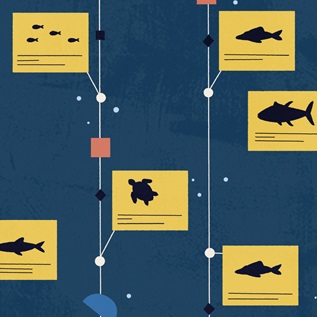State Exemptions to Roadless Rule Would Disadvantage Outdoor Enthusiasts
If the National Park System is America’s best idea, then publicly owned national forests may be America’s best kept secret. Spread across 40 states and Puerto Rico, these 154 forests cover an area the size of Texas and Louisiana combined, and as savvy travelers have long known, offer an opportunity to enjoy outdoor recreation in largely undisturbed areas, with far smaller crowds than are found at many national parks.
Custer Gallatin National Forest, Stanislaus National Forest, and the Arapaho and Roosevelt National Forests may not be household names, but millions of people visit these places annually to enjoy scenery and recreation opportunities that are similar to these forests’ more-famous neighbors (Yellowstone, Yosemite, and Rocky Mountain national parks, respectively). In fact, national forests contribute some $13 billion to the U.S. economy from visitor spending, and support more than 200,000 jobs.
But our national forests are under threat. For nearly 20 years about one-third of these places have been safeguarded from development by a policy known as the Roadless Area Conservation Rule. The U.S. Forest Service adopted the roadless rule in 2001 to help control the proliferation of roads and development in our forests. This development, which is mostly for industrial logging, disrupts wildlife habitat, ruins watersheds that downstream communities rely on for drinking water, and increases the likelihood of fires, which start more frequently along roads.
Now Utah is seeking an exemption from the Forest Service’s parent agency, the Department of Agriculture, to allow logging roads through millions of acres of extraordinary public lands prized by hunters, anglers, birders, hikers, and other visitors. Alaska has sought a similar exemption. In Utah, the effects of withdrawing that protection would be felt across the state’s national forests.
For example, the Dixie National Forest in southern Utah neighbors many of the state’s renowned natural wonders, including Snow Canyon State Park; Cedar Breaks National Monument; Zion, Bryce Canyon, and Capitol Reef national parks; and the Grand Staircase-Escalante National Monument. I have hiked, backpacked, and camped in Dixie and found it to be far more than a backdrop; it is a splendor—for its numerous fishable lakes, stunningly scenic habitat for bobcat, turkey, deer, elk, and pronghorn, aspen groves that explode with color in the fall, and sweeping vistas, like the Markagunt, Paunsaugunt, and Aquarius plateaus that stand sentry over much of southern Utah’s red rock country.
The Utah petition would strip protections from 90 percent of the state’s national forests, including the Dixie. It would roll back or eliminate safeguards for nearly 80 percent of protected backcountry skiing, hiking, and mountain biking areas, and more than 50 percent of currently protected climbing areas.
While national parks were designed to accommodate the growing car culture of the 20th century and visitation by large numbers of people, our national forests provide a place to get away from it all, in solitude or with friends and family, and to find peace of mind. These are special places to experience undisturbed old growth forests, rugged mountain peaks, and remote waters—places where people hunt, fish, hike, and immerse themselves in the purity of the natural world.
Protecting national forests has long been popular with the American public. Nearly all of the 1.6 million public comments the Forest Service received after proposing the roadless rule were in favor of it and now, according to a March poll commissioned by The Pew Charitable Trusts, 75 percent of Americans favor the rule and 59 percent believe that no state should be exempted from it. That’s a tremendous level of bipartisan support.
Many of us claim a special connection to one of our national forests. But these places belong to all Americans, and each of us has a stake in conserving roadless areas. Agriculture Department Secretary Sonny Perdue should reject Utah’s petition and continue America’s proud tradition of protecting remarkable places that support local economies, and give outdoor enthusiasts memories to last a lifetime.
Ken Rait is a project director for The Pew Charitable Trusts’ U.S. Public Lands and Rivers Conservation program. He led the Heritage Forest Campaign that established the roadless policy.
This article was first published in the Washington Examiner.






